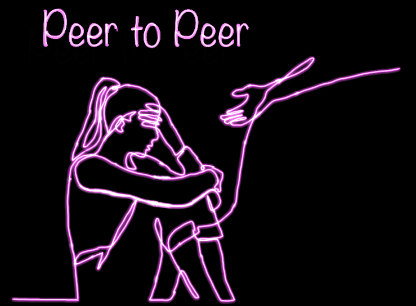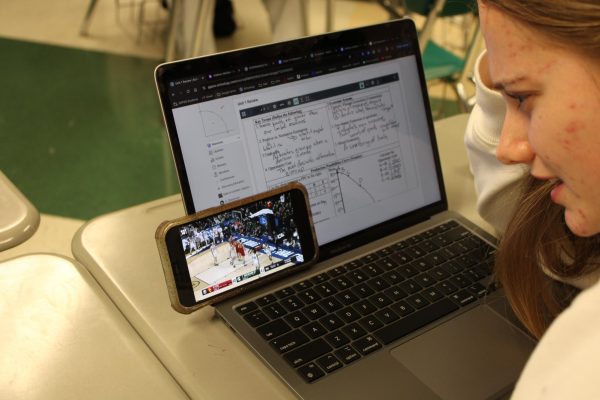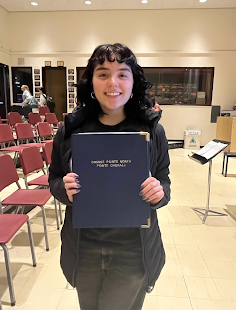Peer-to-peer program launches

Photo credit: Bella Yoakam
February 8, 2021
The stigma surrounding mental health has been an ongoing issue for a long time, especially among young teens. With immense amounts of stress and pressure, it comes as no shock that teens are more likely to avoid getting help or talk about their issues. The Peer to Peer Program is here to shut down all of the stigma, increase the normalization of help-seeking, encourage those that have been unwilling to seek help to finally reach out, and provide students with the help they need.
School psychologist Christine Kuhl says she implemented this program at North because it was deeply needed, she believed it would have a great impact on the students.
“I met with Dr. Murray shortly after the conference to talk with her about bringing the program to North,” Kuhl said. “I felt it filled a need at North to have increased mental health awareness and my colleagues and I believed the impact of this program would be great because it is created for students, by students.”
There is a great amount of hope that this program will not only benefit students’ mental health, but ease the difficult conversation that comes with talking about mental health issues.
Sophomore Lauren Vietengruber says Peer to Peer will not only impact the students but the school as a whole.
“I definitely think this new program will have an impact on students and an even larger influence on the school as a whole. I hope it brings the school together on mental health because no one is alone, we are a whole all working together,” Vietengruber said.
Kuhl says Peer to Peer is all about raising awareness of mental health by having fellow peers advocate the importance of reaching out for help.
“The program focuses on raising awareness of mental health, reducing the stigma around mental health, and promoting help-seeking within a school community,” Kuhl said. “It does this by creating a team of peers to act as mental health advocates and connectors to help students at North.”
Sophomore Lizzy Cwiklinski volunteered for this program for multiple reasons, one being because she believes mental health is a huge issue that needs to be addressed.
“I decided to volunteer for Peer to Peer because mental health has always been a priority of mine,” Cwiklinski said. “It’s something that needs to be brought into the forefront for the students, especially this year when mental health concerns are more prominent than ever.”
The great thing about this program is how the students who reach out for help are not only receiving help from trusted adults, but also their peers.
“I think the best thing about this program is that it employs the power of peers to not only serve as connectors to help but also to normalize help-seeking. Our students are experiencing more psychological stress than ever before,” Kuhl said. “We have to communicate to our students that it is ok not to be ok and that we have the support at North and in our community to help them through.”












